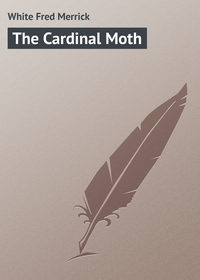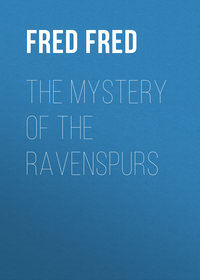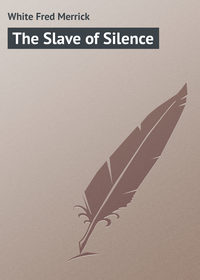 полная версия
полная версияThe Weight of the Crown
Jessie nodded; she did not quite understand the problem yet. What had this War Office business to do with Vera Galloway and her dangerous and desperate enterprise? She looked inquiringly at her companion.
"We had better get along," he said. "I see Pongo is waiting for you. Tuck that wrap a little closer under your arm so that it may not be seen. And as soon as you get back come to me and let me know exactly what has happened. I ought to be ashamed of myself. I ought to lay all the facts of this case before my charming hostess; but there are events here beyond the usual society tenets. My dear child, don't you know who the Charles Maxwell is whose name those boys are yelling? Does not the name seem familiar to you? Come, you are quick as a rule."
"Oh, yes," Jessie gasped. "That was the name that Prince Mazaroff mentioned. Dr. Varney, it is the man to whom Vera Galloway is engaged, or practically engaged. What a dreadful business altogether."
"Yes," Varney said curtly, "the plot is thickening. Now for the motor-car."
CHAPTER XII
A PRODIGAL SON
Loth as he might have been inclined to admit it, Dr. Varney was by no means ill-pleased with his share of the adventure. He felt that a man like himself, who knew everything, would be decidedly useful. And how much he really did know Jessie would have been startled to know. For here was a man who had a great practice amongst politicians, and statesmen especially. He walked quietly back to the house now and entered the salon as if looking for somebody. His shrewd face was grave and thoughtful. He found his man at last – a tall, grizzled man, who bore some kind of likeness to a greyhound. He was in a measure a greyhound, for he had been a queen's messenger for many years.
"I thought I should find you about somewhere," the doctor said. "I want a few words with you, Lechmere. Let us go into the garden and smoke a cigarette."
"Always delighted to chat with you, Varney," Lechmere said. "Come along. Now, what is it?"
"Re the Countess Saens," Varney said. "You know the woman I mean?"
"Certainly I do. Lives in a big house in Connaught Crescent. Not her own house, by the way. Dresses magnificently, gives wonderful parties, and always has the last new thing. Handsome woman, too, and goes everywhere. But nobody knows anything about her."
"I came to you for a little information on the point, Lechmere."
"Well, as a matter of fact I can give it to you, Varney. There are very few of the foreign colony in London whose history I haven't ready for docketing. Many a useful hint have I given the Foreign Office and Scotland Yard. Ever hear of Saul Marx, the famous cosmopolitan spy – I mean the man who saved that war between France and Germany?"
"Of course I have heard of Marx. Who hasn't? But what has that to do with the business?"
"Well, he told me all about the charming countess. She began life in Warsaw in a company of strolling players. Afterwards she married one of the most noted scamps in Paris, who wanted a pretty wife as a pawn in some game of his. The fellow ill-treated her horribly, but he taught her everything in the way of the predatory life that was to be learnt. Finally, the husband died under very strange circumstances, and between ourselves, Marx says that the woman murdered him. After that she narrowly escaped a long term of imprisonment over the Malcolm-Sin diamond business, and then for a long time nothing was heard of her till she turned up as Vera Olpheut, the famous anarchist speaker. She was expelled from Russia, which was all a blind, seeing that she is one of the cleverest spies that the Russian police ever employed. Her ladyship is after a very big game now, or she would not be spending all that money. An adventuress like that never pays her tradesmen as a rule, but I know for a fact that the household bills are discharged regularly every week."
"You are quite sure of those facts?" Varney asked.
"My dear fellow, you can take them as gospel. Marx never makes a mistake. Why do you ask?"
"I am merely a seeker after information. I may be in the way of putting a spoke in the lady's wheel a little later on, perhaps. Have you heard of that business at the Foreign Office?"
"I heard of it just now; in fact, I looked in here to see if Merehaven could tell me anything about it. How those newspapers get hold of these things puzzles me. But I don't suppose it is true that poor old Dick Lancing committed suicide at his club, and – "
"It's perfectly true, Lechmere. I was in the club directly after, and I followed on to Charing Cross Hospital, only to find that I was too late. What you say about the newspapers is absolutely correct. But, unless I am greatly mistaken, the newspaper containing the startling report in question will help me over this matter. I am going to make a proposal to Lord Merehaven."
"I've been trying to get at him. But the Austrian Ambassador has held him fast for the last hour."
"Well, there is plenty of time," Varney went on. "From what I can understand papers of the utmost importance have been stolen from the Foreign Office, or they have been sold by some official to the foe. On the face of it, the charge points to poor Lancing; but one never can tell. Those papers relate to a kind of understanding with Asturia, and if Russia gets to know all about it then we are done. Now, let me tell you a little thing that happened to-night. There was a burglary at Countess Saens' house, and the thief took nothing but papers. The thief was a woman, who obviously went to the countess' for the very purpose of obtaining possession of those papers. Now, it is only a theory of mine, but I feel pretty sure that the papers have to do with the Foreign Office scandal. If we get to the bottom of it, we shall find that the countess inspired the paragraph that the Evening Mercury had to-night. Do you happen to know anything about the editor of that sheet?"
"Fellow named Hunt, an American," Lechmere replied. "As a matter of fact, the Mercury is an American paper, the first start of an attempt to capture the English Press. You know how those fellows boast. I've met Hunt several times in society."
"Did you ever happen to meet him at Countess Saens' house?" Varney asked.
Lechmere turned over the question before he replied. On consideration he had seen Hunt twice at the house in question. Not that that was very material, because all sorts and conditions of men flocked to the countess' evening parties. But Varney thought otherwise.
"At any rate, the fact fits in well with my theory," he said. "I shall be greatly surprised if we fail to find a connection between the countess and that sensational story in to-night's Mercury. I shall make it my business to meet this man Hunt. Well, what is the matter?" A breathless footman stood before Varney, and stammered out something to the effect that Lord Merehaven had sent him here hot-foot in search of the doctor. A gentleman had been taken suddenly ill. The rest of the guests did not know anything about it, and the gentleman in question lay in a state of collapse in his lordship's study. Would Dr. Varney come at once. Varney was on his way to the house before the footman had finished his halting explanation.
The study door was locked, but it was opened immediately on Varney whispering his name. In a big armchair a white-haired man in evening dress was lying back in a state of collapse. By his side stood Lord Merehaven, looking anxious and bewildered, whilst Ronald Hope was trying to force a little brandy between the lips of the unconscious figure in the chair.
"Thank goodness you have come, Varney!" Lord Merehaven said shakily. "It's poor old Reggie Lancing. He simply walked into here dragging on Hope's arm, and collapsed. He said something to the effect that his boy had committed suicide, and some rubbish about missing papers. What does it mean?"
Varney was too busy to answer the question. He removed Sir Reginald's collar and turned down the neckband. Meanwhile the patient was breathing heavily.
"Put him flat on the floor," Varney said. "It's not quite so bad as it looks. A seizure from over-excitement, or something of that kind. Give me a pen and ink and paper."
Varney hastily scribbled some formula on a sheet of note paper, and directed that it should be taken to a chemist and be made up at once. Till he could administer the drug he could do nothing. There was a wait of half an hour before the footman returned. Then the drug was coaxed between the stricken man's teeth, and presently he opened his eyes once more. He was terribly white and shaky, and he seemed to have some difficulty in getting out his words.
"It's the disgrace, Merehaven," he said – "the dreadful disgrace. To think that a son of mine could have been guilty of such a thing! I would not have believed it; it came to me quite as a shock – that paragraph in the late Mercury. I went to look for my son at once, but he had paid the penalty already. He had shot himself, Merehaven – shot himself – shot himself."
The old man repeated the last words again and again in a feeble kind of way. Lord Merehaven was sympathetic enough, but utterly puzzled. He looked at the other and shrugged his shoulders.
"Is this a mere delusion?" he asked. "You don't mean to say that Asturia business – "
The speaker paused, conscious that he was perhaps saying too much. Varney hastened to explain, to Merehaven's horror and astonishment. Positively, this was the first that he had heard of it. And if Captain Lancing had shot himself that was proof positive.
"Good heavens! what a terrible business altogether!" Lord Merehaven cried. "And the mischief that may have been done here! I must see the King of Asturia at once, late as it is, though goodness knows where I am to look, seeing that the king is – "
The speaker paused, and Ronald Hope took up the thread of the conversation.
"It may be possible, my lord," he said, "that his majesty is nearer at hand than you suppose."
CHAPTER XIII
THE MODERN JOURNALIST
The old diplomatist looked coldly and suspiciously at the speaker. It was hardly the way for a young man to address a Cabinet Minister, and one who, moreover, was Secretary of State for Foreign Affairs. Varney saw what was passing through Lord Merehaven's mind and promptly interfered.
"For heaven's sake, don't stand on ceremony!" he said. "This is an exceedingly serious matter. Certain important papers are missing from the Foreign Office. It is alleged that confidence has been betrayed by Captain Lancing and Mr. Charles Maxwell. The boys are shouting it in the streets, probably most of your guests know all about it by this time. Those papers have been sold, or given to somebody who has made use of them. This is no canard to sell a few miserable papers."
"The documents you refer to were in my hands at seven o'clock," Lord Merehaven said. "I read them and made notes on the margin of them in my office not long before dinner – "
"And did you lock them up in your safe afterwards?" Varney asked.
"No, I didn't. There is no safe in my office. I gave the papers to Captain Lancing and Mr. Maxwell, and asked them to see that they were securely placed away. Then I came home. Do you mean to say that this thing has been over London for the past hour and I never knew it?"
"So it seems," Varney said coolly. "How should you know it when you have not been out of the house all the evening? And none of your guests could get at you to ask questions, seeing that you have been closeted with one ambassador or another ever since dinner."
"That's quite true," Lord Merehaven admitted moodily. "But what is to be done? You don't suggest that the contents of those papers is made public?"
"I fancy not," Varney replied. "My dear Sir Reginald, you have read that paragraph. What does it say?"
The stricken man in the armchair looked up with dulled eyes. It was some little time before he could be made to understand the drift of the question.
"I am trying to remember," he said, passing his hand over his forehead. "As far as I can recollect, there were no details given. The paragraph said that certain important papers had been stolen from the Foreign Office, and handed over to the enemies of this country. The editor of the Mercury was supposed to be in a position to vouch for this, and he hinted very freely at the identity of the culprits. A résumé of the missing papers was promised for the morning issue of the Mercury to-morrow. Then there was a break in the report, and down below a short history of my son's suicide. This was pointed to as an absolute confirmation of the news, the suggestion being that my son had shot himself after reading the nine o'clock edition of the Mercury, which contained the first part of the report."
"There is some foul and mysterious business here," Ronald Hope said sternly. "It is only twenty minutes ago that I heard what the boys were calling out. I immediately took a hansom to Maxwell's rooms, to find that he had gone to Paris in a great hurry. He had left no message behind him. He had not even taken his man, whom he never travels without."
"He has fled," Merehaven said promptly. "This thing is absolutely true. What beats me is the prompt way in which these Mercury people collected the news."
"That is where I come in," Varney remarked. "We'll get Lechmere into this, if you don't mind? Sir Reginald had better stay here for the present. Lechmere shall go and interview Hunt of the Mercury. And if he does not bring back some very startling news, I shall be greatly mistaken."
Lechmere came into the study cool, collected, and imperturbable as ever. He had quite relinquished his old pursuits and occupations now, but he was delighted to do anything to be of service to Lord Merehaven and the Government; in point of fact, he would rather enjoy this adventure. What was he to do?
"Find Hunt of the Mercury," Varney said. "Run him down in a corner, and let him know that you are not the man to be trifled with. And when you have done that, make him tell you the exact time that he got his information over those missing papers."
Lechmere nodded without asking further questions. He knew that he would be told everything in time. He would do what he could, and return and report progress as soon as possible. His first move was to take a hansom and go down to the office of the Mercury and there ask for Mr. Hunt. But Hunt was not in; he had gone away about half-past seven and had not returned yet. Usually he looked in a little after midnight to see that the evening edition of the paper was progressing all right. So far as the chief sub-editor could say, Mr. Hunt had gone to the Carlton to supper.
"Something gained," Lechmere muttered, as he drove to the Carlton. "If that chap left the office at half-past seven, that sensational paragraph had already been passed for the Press. No assistant editor would dare to shove that into a paper on his own responsibility. Very smart of them to get Lancing's suicide. But I expect some American reporter shadowed the poor chap."
Mr. Hunt had been to the Carlton; in fact, he had just arrived there, but he was in a private room with a lady, and had asked not to be disturbed. Intimating that he would wait, Lechmere took his seat at a little table in one of the public rooms and asked for something. He had a sovereign on the table by the side of his glass, and looked significantly at the waiter.
"That is for you to earn," he said, "if you are smart and do your work properly. In the first place, do you happen to know Mr. Hunt, the editor of the Mercury?"
The man replied that he knew Mr. Hunt quite well. In fact, he was pretty intimately acquainted with all the American colony in London. Mr. Hunt supped at the Carlton frequently; he was supping now with a lady in a room upstairs. Lechmere began to see his way.
"Did you happen to see the lady?" he asked. "If so, what was she like?"
"I saw them come not many minutes ago. In fact, they looked in here, and the lady wanted to take the table by the door, but Mr. Hunt said 'No.' They appeared to be in a great hurry, seeing that it is getting late; and it seemed to me that Mr. Hunt was not so amiable as usual. The lady was tall and dark; she had a black wrap, and under it was a dress of yellow satin."
"Good man!" Lechmere said with genial warmth. "You have earned your money. All you have to do now is to let me know the moment that Mr. Hunt is leaving the hotel. In any case it can't be long, because it is nearly twenty minutes past twelve now."
The waiter came back presently and pocketed his sovereign. Mr. Hunt and the lady were just leaving the hotel. Lechmere sauntered into the hall and stood watching the other two. He smiled to himself as he noted the face and features of Hunt's companion. A hansom stood at the door, and into it the American handed his companion and raised his hat.
"It will come out all right," Lechmere heard the lady say. "Don't look so annoyed. Your paper is not going to be allowed to suffer. Good-night!"
The hansom drove away, and Hunt raised his hat. As he stopped to light a cigarette, Lechmere crept up behind him and tapped him on the shoulder. The American turned in a startled way.
"Mr. Lechmere!" he stammered. "Really, you gave me a start. If there is anything that I can do for you – ?"
"There is," Lechmere said in a sharp, stern way. "I want to know the exact time that your office received the unfortunate news of the Foreign Office business."
The directness of the attack took the American quite off his balance. The truth broke from him.
"About ten minutes to seven," he stammered. "That is to say – But, confound it all, what business is that of yours?"
Lechmere smiled; he could afford to let the other bluster now that he had learnt everything. He turned the matter aside as a joke. He made some remark about the beauty of the night, and a minute later he was bowling back in a hansom to Merehaven House.
"Yes, I have done pretty well," he said in reply to Varney's questioning gaze. "I have seen Hunt, whom I traced to the Carlton, where he was supping hastily in company with Countess Saens. I sort of fool-mated him over that paragraph, and he told me that the information reached the Mercury at about ten minutes to seven. He tried to bluster afterwards, but it was too late. At ten minutes to seven Hunt knew all about that scandal at the Foreign Office."
Lord Merehaven threw up his hands with a gesture of astonishment. Varney smiled.
"I knew that you would come back with some amazing information," the latter said. "See how the mystery gets thicker. Lord Merehaven is going to say something."
"I am going to say this," Merehaven remarked sternly. "The Mercury knew of those missing papers before seven o'clock. At seven o'clock those papers were in my hands, and the scandal had not begun then. And yet the Mercury paragraph, written before the robbery, is absolutely true! What does it mean?"
CHAPTER XIV
BAFFLED!
Meanwhile, the Countess Saens had departed from Merehaven House with a smiling assurance to the effect that she did not anticipate any serious loss in consequence of the very mysterious robbery. She looked easy enough as she stepped into her brougham, drawn by the splendid bays that London knew so well by sight, and kissed her fingers gaily to her cavalier. But the brightness left her eyes when once she was alone. There was a keen, eager expression on her face then, a look of mingled anxiety and anger in her dark eyes. The most fascinating woman in London would have surprised her many admirers had they chanced to see her at that moment. She looked old and haggard; the smiling mouth had grown hard as a steel trap. She did not wait for the footman to open the door; she ran up the steps with a curt command that the carriage must wait, as she was presently going out again.
The trembling maid was upstairs awaiting the coming of her mistress. She had very little to add to what she had already said. Nothing appeared to have been disturbed. There was no sign of a robbery anywhere, save that one of the drawers in a dressing table had been turned out and the contents scattered on the floor.
"Now listen to me," the countess said. "Who paid for you to take those papers?"
"I know nothing of any papers, non, non!" the maid replied. "I take nothing. If madame wishes to suggest that I am a thief, I go. I leave to-night."
The girl paced up and down the room, her pale face held high. She was not used to being called a thief. If madame was not satisfied she would depart at once. The countess changed her tone.
"Now listen to me," she said more gently. "Just before dinner to-night I am in receipt of certain papers. Nobody knows that I possess them. For safe keeping I place them in that drawer and lock it up. Some time later you come to me with this story of the burglary. If jewels had been stolen, or money, I would have perhaps understood it, though your tale is so extraordinary that – "
"Not at all, madame," the maid cried hotly. "No more strange than the stories one reads every day in the newspapers. And there are no jewels missing."
"No, and that makes the affair all the more suspicious in my eyes. Nobody could have known about those papers, and yet the thief takes nothing else. A woman walks into the house as if it belonged to her, she goes direct to that drawer, and there you are! You say you saw the woman?"
The maid nodded sulkily; she did not look in the least guilty.
"I have already told madame so," she said. "I saw the woman twice to-night. The first time was when she was here, the second time at the residence of my Lord Merehaven. It was the lady in the satin dress who stood in the hall." The girl spoke in tones of perfect confidence. No ridicule on the part of the countess could shake her belief in the statement.
"But it is impossible," the latter said. "You are speaking of Miss Galloway. I saw Miss Galloway several times during the evening. If you are correct, she must have slipped away and changed her dress, committed the robbery, and be back here and changed her dress again – all in a quarter of an hour."
"Nevertheless, it was the same woman," the maid said with a stubborn air.
With a gesture of contempt the countess dismissed the girl. It was impossible to believe that she had had a hand in the disappearance of those precious papers. Perhaps the hall porter might have something to say in the matter. In the opinion of Countess Saens, the thief was non-existent. At any rate, the hall porter would be able to say.
The hall porter had not much to tell, but that little was to the point. Certainly, about the time mentioned by the maid a woman had come into the house. She had opened the hall door and had walked in herself as if she were quite at home there. She was plainly dressed in black and wore a veil. Then she proceeded to walk upstairs.
"You mean to say that you did nothing to interfere?" the countess asked.
"Well, no, madame," the hall porter admitted. "The young woman appeared to be quite at home; evidently she had been here many times before, and I thought she was a friend of Annette's. Friends of hers do come here sometimes after you have gone out, and one or two of them walk in. So I took no notice whatever. A little time after, the young woman came back as if she were in a hurry, and hastened out of the house. Just as she was gone I heard Annette call out. Thinking that something was the matter, I rushed up the stairs. When I knew what was wrong it was too late to go after the thief."
So Annette had been telling the truth, the countess thought. She was furiously angry at her loss, but it was impossible to blame anybody. It was a stroke of the sword after the countess's own heart. But there were disquieting circumstances behind it that frightened her.
"You had better send again to the nearest police-station," she said. "Let them know that I have gone out and shall not be back for some little time."
With a frown between her delicate brows the countess drove away. In all her bold, dashing, adventurous life she had never been confronted by a more difficult problem than this. She was playing for tremendously high stakes, and her share of the victory was the price of a throne. Once this thing was accomplished, she had no need ever to plot or scheme or trick again. A fortune would be hers, and she would sit secure as a leader of fashion for the rest of her days.






